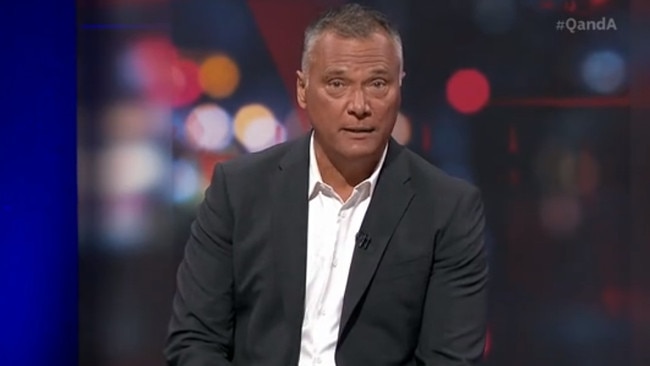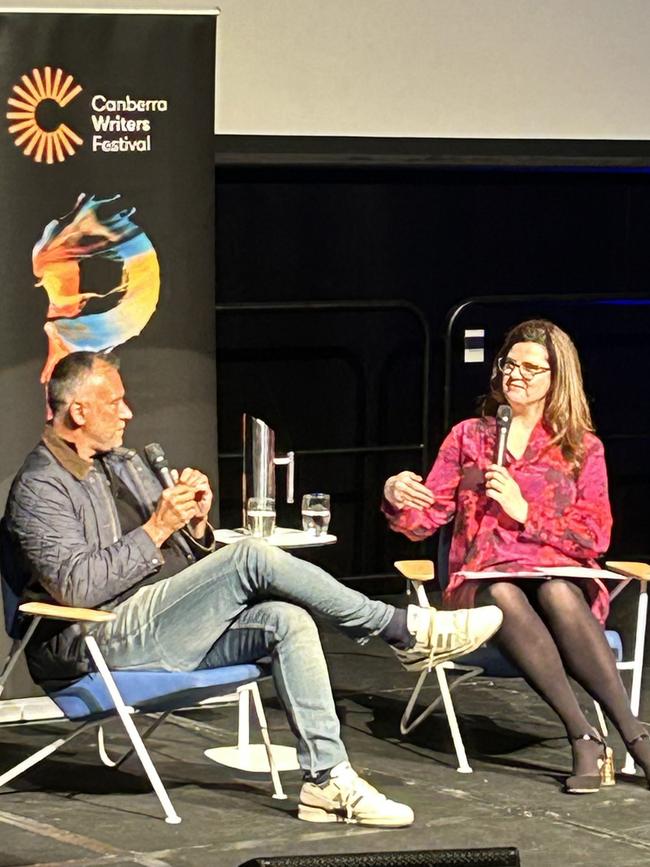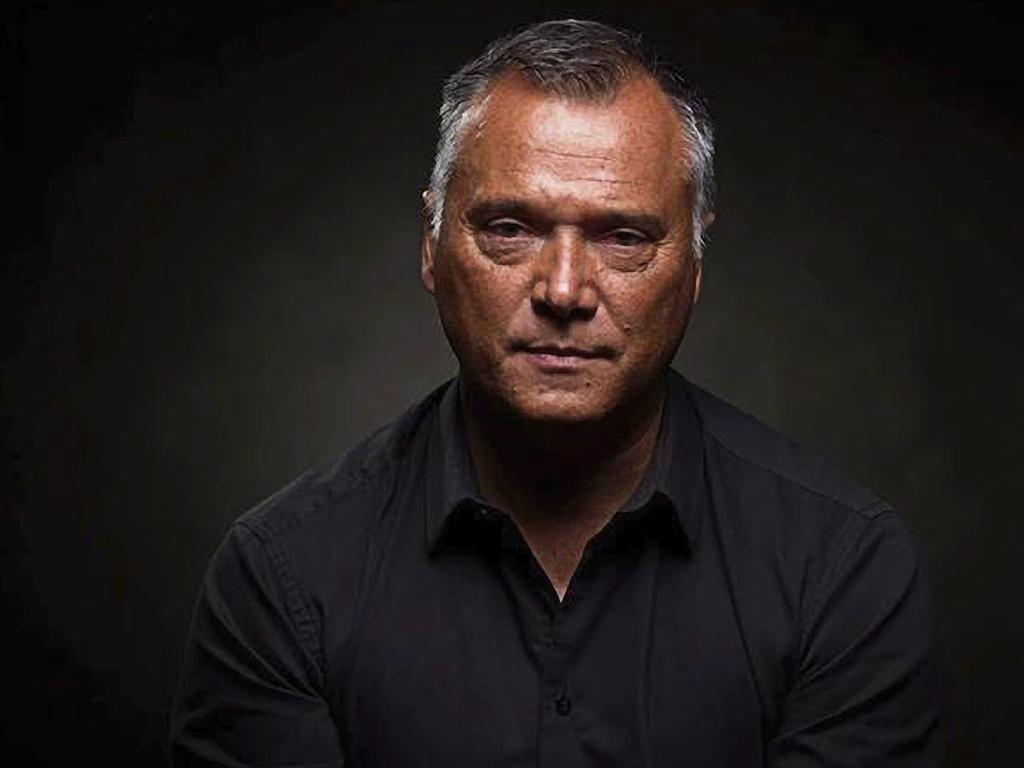Indigenous host Stan Grant criticises Q+A for setting up panels designed to have conflict
Stan Grant slams the format of the chat show that he abruptly quit, saying it fails to bring guests together for a harmonious debate and encourages a social media ‘pile-on’.

Television presenter Stan Grant has condemned the ABC show that he abruptly quit for setting up panels with guests holding starkly different views that are designed to cause conflict and encourage a social media “pile-on”.
Grant, a Wiradjuri, Gurrawin and Dharawal man, quit Q+A in May after citing relentless “racial abuse”, and said the show had failed to bring guests together to have harmonious debate.
Speaking at the Canberra Writers Festival on Saturday during a one-hour session led by Four Corners investigative journalist Louise Milligan, Grant said the show’s set up was flawed.
“You go on Q+A and the first thing you do is you introduce a panel that have more often than not been picked because they have conflict, rather than seeking to find connection,” he said.
“Then you say, ‘go on social media’, basically form your lynch mob, hit the person you hate and pile on.
“I can’t do that anymore and I don’t think that is what you want from our media. I think we are failing you and we must find a better way to doing it.”
Q+A stopped using its X (formerly Twitter) account this month after managing director David Anderson said it was no longer a useful platform for the broadcaster, blaming toxic interactions, lack of trust and increasing costs. He said the ABC would use Instagram, Facebook and TikTok instead.
Grant was part of a controversial 45-minute panel on the evening of King Charles III’s coronation on May 6, led by presenters Julia Baird and Jeremy Fernandez, when colonisation and the damage the monarchy had inflicted on Indigenous Australians was discussed at length.
The panel was dominated by pro-republican voices including Indigenous activist Teela Reid and Australian Republic Movement chair Craig Foster – with Liberal MP Julian Leeser the only pro-monarchist panellist.

The coverage, overseen by executive producer Tim Ayliffe, resulted nearly 2000 written complaints to the ABC and shortly after Grant quit hosting Q+A after 10 months in the role.
Grant, who is on paid leave, said on Saturday that he was partly to blame for problems.
“I have to accept our own complicity in this. One of the reasons that I walked away from being in the media and walked away from Q+A was not just because of the racism pile-on against my family and the violent threats against us, but because I had to accept that I am part of that ecosystem,” he said.
Q+A was led by executive producer Erin Vincent, but she also quit last month, just 24 hours after Grant revealed he would never be returning to the show.
ABC Radio National breakfast presenter Patricia Karvelas has taken over hosting duties for the trouble-plagued show until the end of the year.
At the Australian National University event on Saturday, Milligan told the audience that a big problem in public debate was the failure to listen to alternative voices. “People just shout at each other and it’s not about listening to someone’s perspective and trying to gain some understanding from that,” she said.
Grant then said “Sometimes changing our minds,” to which Milligan replied “Yes, exactly, what happened to changing our minds?”.
Milligan said “a lot of people would feel the same way” about Grant’s “courage” after he gave an address on his final Q+A show in May, saying he was walking away from the program after receiving relentless racial abuse.
“When you stood up … you were so vulnerable when you made your speech on Q+A,” she said.
“You made a lot of people feel heard who perhaps don’t have the courage or platform to say how they feel.
“I just wanted to say thank you for standing up to the bullies, and I think everyone here would feel the same way.”
Grant also spoke about the fallout from the reporting of ongoing crime issues in the Northern Territory and he said there was still “a narrative that we are to blame”.
“We saw it with the recent stories in Alice Springs, the kids were to blame. Now people have a right to live in safety. You don’t want your windows smashed or your shop looted or your car overturned,” he said.
“What we often see instead is a punitive approach, that makes greater incarceration, greater institutionalisation, rather than dealing with the fundamental things.”
He said decreased funding for Indigenous Australians had contributed to ongoing problems in these areas.
Grant also said he was “struggling to get a read” on which way the referendum vote would go but conceded the no vote was ahead.
He blamed the media for framing the referendum as a “conflict-laden position”.
“We have been buried in so much arcane detail when there is a simple proposition,” he said.








To join the conversation, please log in. Don't have an account? Register
Join the conversation, you are commenting as Logout